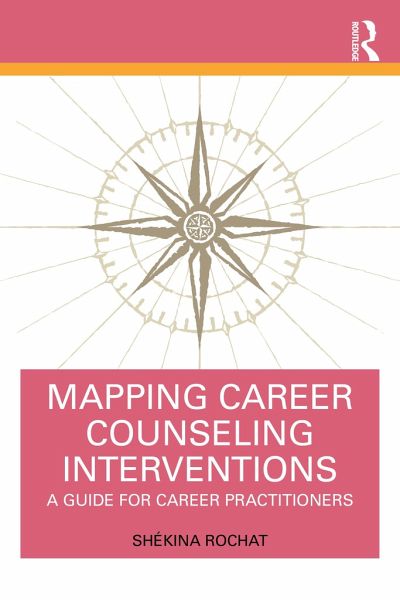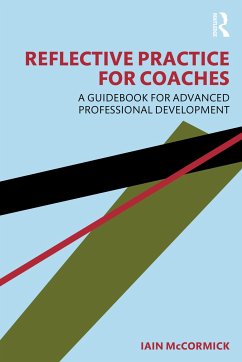
Mapping Career Counseling Interventions
A Guide for Career Practitioners
Versandkostenfrei!
Versandfertig in 6-10 Tagen
41,99 €
inkl. MwSt.
Weitere Ausgaben:

PAYBACK Punkte
21 °P sammeln!
Mapping Career Counseling Interventions provides an innovative insight into identifying and resolving problems within career management. In recent years, myriad of counselling tools has been developed so that practitioners can offer the most appropriate support possible. To guide the selection of such tools, this book offers a "map" that introduces and links 63 frequent career management difficulties with more than 160 qualitative interventions and solutions.Through its highly organized layout and extensive detail, major career management difficulties-namely lack of motivation, indecisiveness,...
Mapping Career Counseling Interventions provides an innovative insight into identifying and resolving problems within career management. In recent years, myriad of counselling tools has been developed so that practitioners can offer the most appropriate support possible. To guide the selection of such tools, this book offers a "map" that introduces and links 63 frequent career management difficulties with more than 160 qualitative interventions and solutions.
Through its highly organized layout and extensive detail, major career management difficulties-namely lack of motivation, indecisiveness, dysfunctional beliefs, lack of information, conflicts, and lack of employability-are scrutinized and divided into specific, more manageable sub-difficulties. Targeted interventions to address each of those difficulties, originating from vocational, motivational, and positive psychology, are then suggested and described. From these conclusions, the book delivers practical advice to help conduct these interventions in a sensitive and respectful manner. Overall, this book outlines the most effective ways to foster a good working alliance. One of the book's standout features is its inclusion of an inventory and card sort to facilitate the identification of obstacles to professional choice and career management.
This book is a pivotal resource for the large and diverse community of career development practitioners, such as career counsellors, career advisors, employment counsellors, and career coaches, regardless of their specific audience and work settings.
Through its highly organized layout and extensive detail, major career management difficulties-namely lack of motivation, indecisiveness, dysfunctional beliefs, lack of information, conflicts, and lack of employability-are scrutinized and divided into specific, more manageable sub-difficulties. Targeted interventions to address each of those difficulties, originating from vocational, motivational, and positive psychology, are then suggested and described. From these conclusions, the book delivers practical advice to help conduct these interventions in a sensitive and respectful manner. Overall, this book outlines the most effective ways to foster a good working alliance. One of the book's standout features is its inclusion of an inventory and card sort to facilitate the identification of obstacles to professional choice and career management.
This book is a pivotal resource for the large and diverse community of career development practitioners, such as career counsellors, career advisors, employment counsellors, and career coaches, regardless of their specific audience and work settings.














